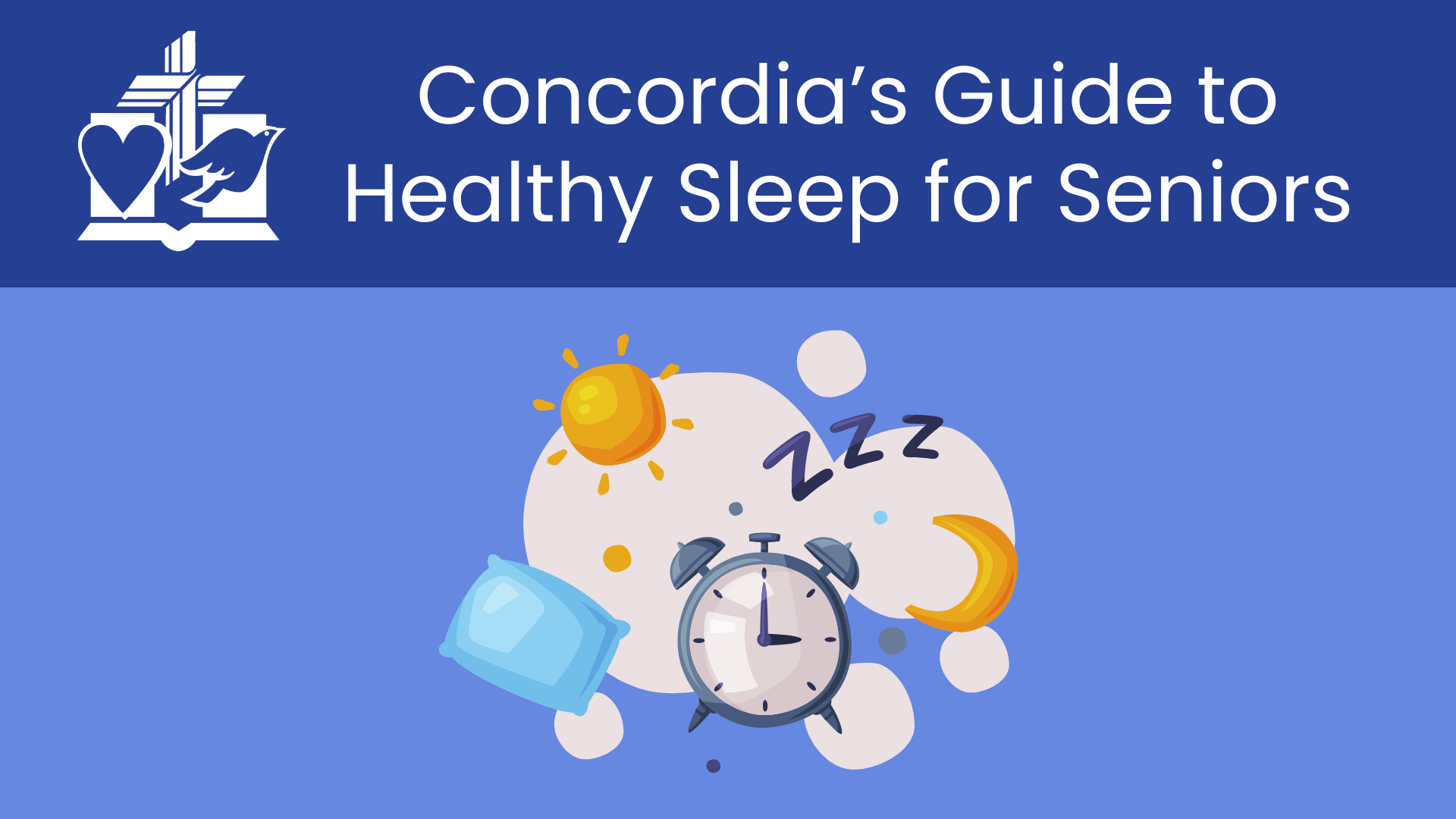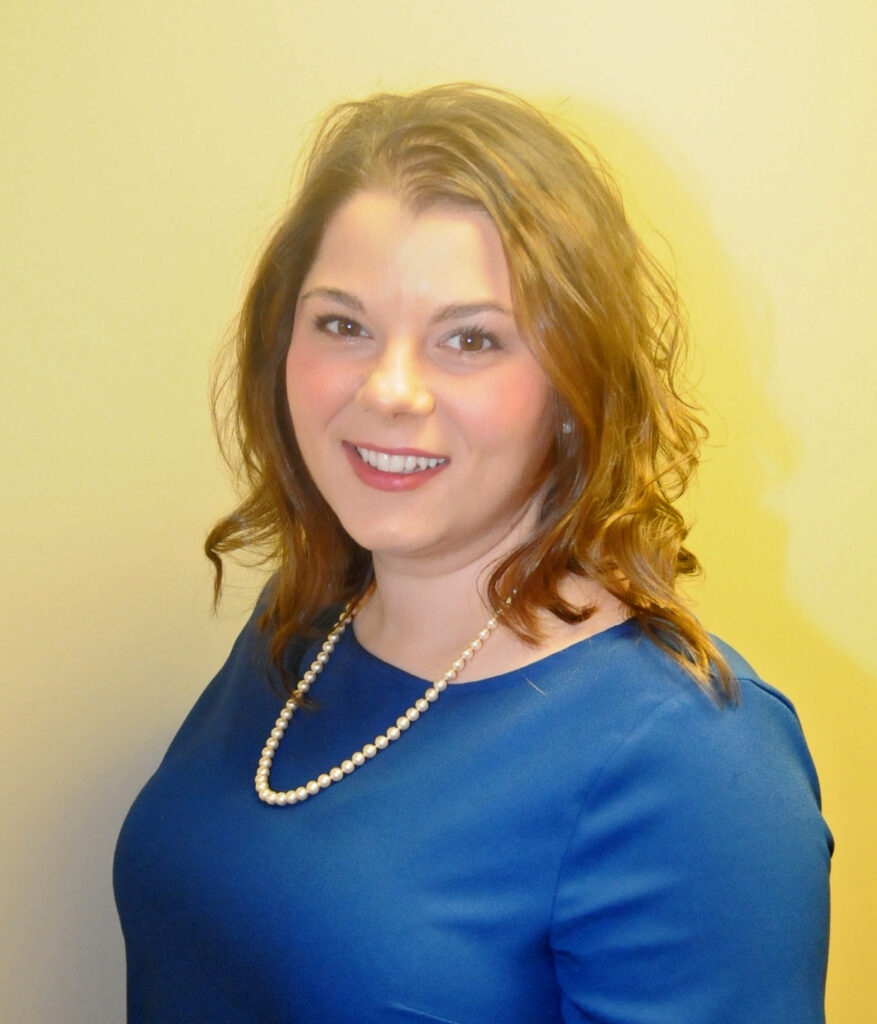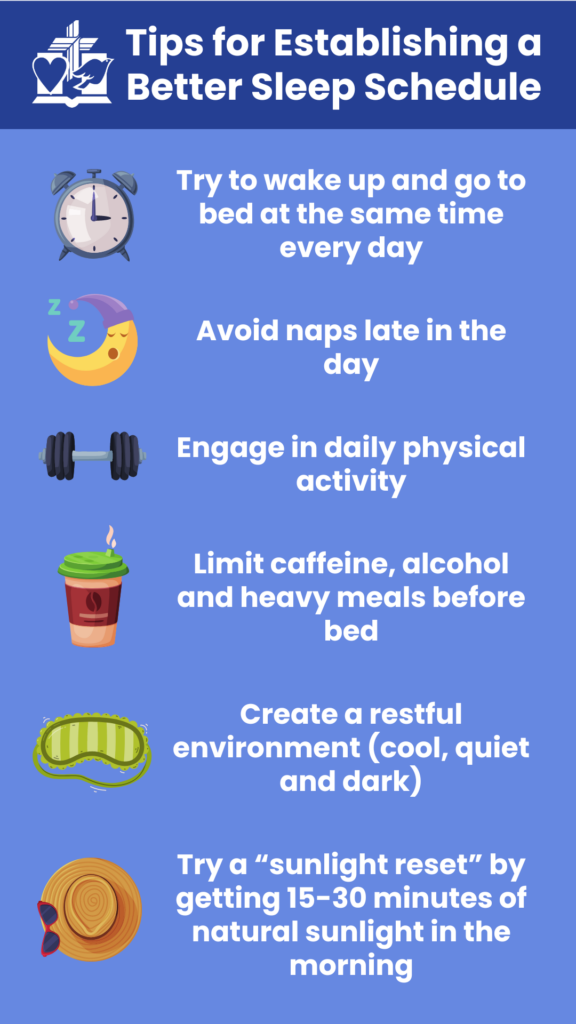Concordia’s Guide to Healthy Sleep for Seniors

Getting proper sleep is an important part of a healthy lifestyle at any age – especially so for seniors. One in three older adults has trouble falling asleep, but sleep problems and aging don’t have to go hand-in-hand. Since September is Healthy Aging Month, Concordia has created a guide to healthy sleep for this age group.
Please keep in mind that this information is for educational purposes only, and does not substitute for medical advice.
Why Sleep is Important as We Age
According to the National Institute on Aging, consistent poor-quality sleep or lack of sleep “increases your risk of health problems such as cardiovascular disease, high blood pressure, diabetes, depression and obesity.” Conversely, good sleep can be beneficial for seniors.
Concordia Physician Practice CRNP Stephanie Snow has seen how much it can make a difference for many of her patients from Concordia’s senior living communities: “As we age, sleep becomes crucial for maintaining cognitive function, emotional regulation, immune health and physical repair. Proper rest supports memory retention and the risk of chronic conditions, helping seniors stay mentally and physically well.”

Related: Exercise for Healthy Aging
How much sleep do seniors need? Similar to younger adults, seniors need about 7 to 9 hours of sleep each night, despite misconceptions that we need less sleep as we age. Falling asleep and staying asleep, however, can sometimes be easier said than done.
Why Seniors Have Trouble with Sleep
There are many factors that can negatively impact seniors’ sleep schedules, whether they struggle with insomnia or not.
“Seniors often have lighter, less restorative sleep due to aging’s effects on the sleep cycle, leading to more frequent wake-ups,” Stephanie explained. “They may also experience changes in their internal body clock (circadian rhythm), leading to earlier sleep and wake times.”
John Hopkins Medicine points out the reason for many of these natural changes can be linked to “changes in the part of the brain that controls sleep and naturally lower levels of growth hormone and melatonin.” Some reasons for the sleep schedule changes are also due to other medical conditions that become more common as we age.
“Chronic health conditions such as arthritis, heart disease or the need to use the bathroom more often (nocturia) can also interrupt sleep throughout the night,” Stephanie said. “Additionally, anxiety, depression, side effects of medications and chronic conditions like restless leg syndrome or chronic pain can make it difficult to unwind and fall asleep.”
Related: 7 Days of Self-Care for Heart Health
While many conditions are lifelong, some conditions that affect sleep can be improved with treatment, the addition of sleep medications or lifestyle changes. Regardless of medical history, there are some simple tips to fall asleep that may help seniors get a better night’s rest.
How to Create a Better Sleep Schedule
Stephanie explains that one of the best ways to fall asleep and stay asleep is to establish a good routine to regulate the body’s internal clock: “This includes waking up and going to bed at the same time each day, avoiding naps late in the day, and engaging in daily physical activity, which promotes better sleep. Limiting caffeine, alcohol and heavy meals before bed, and creating a restful sleep environment (cool, quiet and dark) are also key steps to improving sleep quality.”
Seniors who struggle with sleep can also research different sleep aids, such as a sleep mask or snoring remedies, to help them achieve a better sleeping environment.

The National Council on Aging also suggests that seniors check that they’re sleeping on the right mattress for their individual needs, especially since some adjustable mattresses may be able to help with body pain that affects sleep; avoiding screens that emit blue light (such as smartphones, TVs and computers) before bed; and keeping the space they sleep in tidy to reduce stress and eliminate safety hazards.
Stephanie’s final tip for a better sleep schedule is something that must be done during the day.
“Try a ‘sunlight reset’ by getting 15-30 minutes of natural sunlight exposure in the morning,” Stephanie suggested. “This helps reset your circadian rhythm, signaling to your body when it’s time to wake up and be alert. It can also improve your sleep quality at night by reinforcing your body’s natural sleep-wake cycle. Plus, it’s a great way to soak in some Vitamin D!”
Related: Benefits of Gardening for Seniors
If you or a senior you know struggles with sleep, know that you are not alone. If you’re not happy with how you’re sleeping, talk with your doctor about possible causes and healthy ways to remedy it, and maybe try some of the sleep tips above. When seniors improve their sleep quality, they also improve their waking hours and overall health, which is always something to strive for.
Concordia’s locations and home and community services, such as our retirement living communities, focus on helping residents and patients feel more comfortable, safe and healthy, and they might help you or a loved one catch some more worry-free sleep. For more information about the services we offer at Concordia, feel free to contact us any time via our online contact form, call our administrative headquarters at 724-352-1571, or visit the care levels & services page of our website.
Founded in 1881, Concordia Lutheran Ministries is a faith-based, CARF-accredited Aging Services Network and recipient of the inaugural Pennsylvania Department of Aging Excellence in Quality Care Award. As one of the largest nonprofit senior care providers in the country, the organization serves 50,000 people annually through in-home care and inpatient locations.
Get Updates From Concordia
There is always a LOT happening at Concordia! Would you like to stay up-to-date with our news and events? Sign up for our monthly e-newsletter here.